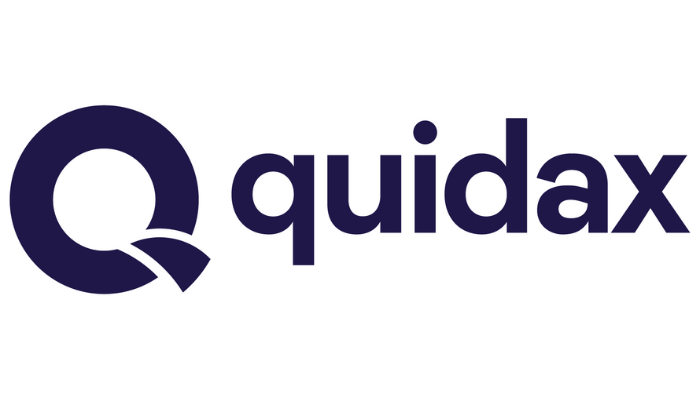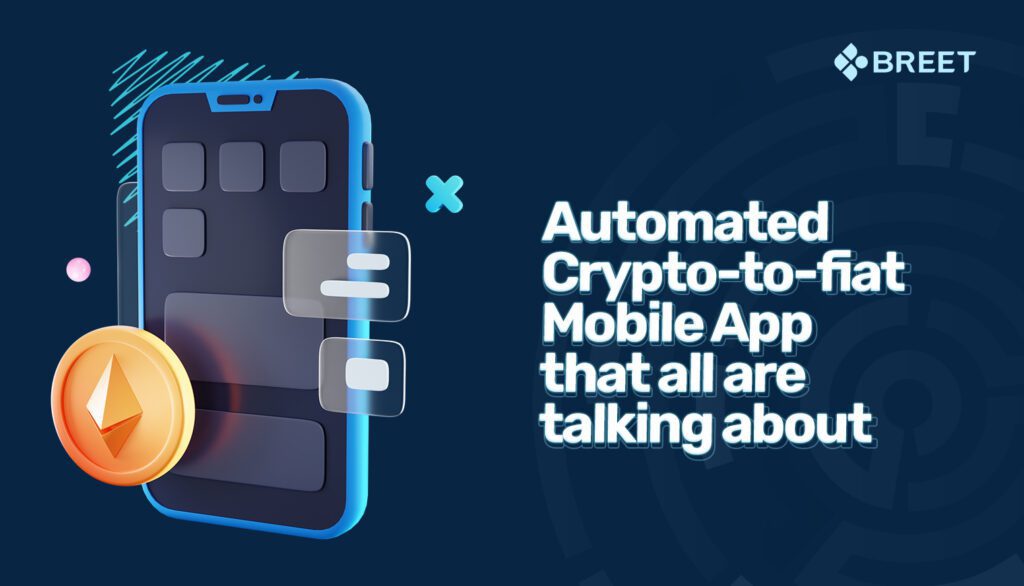In October 2021, Chainalysis, a blockchain analysis company, released a report which ranked Nigeria 6th in the global crypto adoption index. Other African countries on the list include Kenya, Togo, South Africa, Ghana and Tanzania, which shows the significant growth of cryptocurrency in Nigeria and Africa as a whole.
The growth of crypto in Nigeria has been interesting to see and experience. The continued rise in popularity and adoption has given rise to more African-based cryptocurrency trading platforms.
Let’s take a look at two popular crypto exchange platforms and compare them to see which is a better option to trade digital currencies- Quidax and Breet.
Quidax Overview

Quidax
Quidax is a peer-to-peer cryptocurrency exchange platform where users can purchase and sell digital currencies in Nigerian Naira. The crypto trading app went through a brief alpha testing period, after which it was officially launched in 2018.
After the ban on cryptocurrency in Nigeria, Quidax created a peer-to-peer exchange. Quidax peer-to-peer, allows users to fund their accounts with Naira easily.
Although it is considered relatively new compared to a lot of other exchange platforms, Quidax has become one of the most famous crypto trading platforms in Nigeria by trade volume.
Breet Overview

Breet- Best Cryptocurrency Trading App
Breet is an OTC cryptocurrency trading mobile app which provides quick liquidity of cryptocurrencies. It is an over-the-counter strictly-spend crypto exchange app that allows users and businesses who need fiat currency equivalent of their crypto.
Breet has been downloaded and trusted by over 200,000 users in Africa who need quick liquidity of their crypto coins.
Quidax vs Breet: A Side-By-Side Overview
To determine which of the two is a better crypto trading platform, we’ll compare them based on a few factors.
1. Limits:
As a Breet user, there are no deposit limits, but there are certain limits when it comes to withdrawal. The verification level of your Breet account determines your withdrawal limit. You have a daily withdrawal limit of two million Naira or 30,000 Cedis without KYC.
The Basic level KYC will increase your withdrawal limit to five million Naira or 65,000 Cedis.
But with an advanced KYC, you will have no withdrawal limits. The basic KYC must be completed first to complete the advanced KYC.
Also, on Quidax, your limits are determined by your account verification level. You can deposit as soon as you sign up, but you can only withdraw once you verify your account. Check out this article for more information on the various account verification levels and other information.
2. Fees:
Breet does not charge any extra fees, whether to deposit or withdraw.
Quidax, on the other hand, charges transaction fees when you deposit money and withdraw. Below is a detailed breakdown of what fees they charge and how much. Note that they only charge a fee for local currency deposits in cases where they incur costs to receive users’ funds.
Naira Deposit Fees
₦ 200.00 – ₦10,000.00 = ₦ 100
₦ 10,001.00 – ₦ 100,000.00 = ₦ 200
₦ 100,001.00 – ₦ 500,000.00 = ₦ 500
₦ 500,001.00 – ₦ 2,000,000.00 = ₦ 1,000
₦ 2,000,001.00 – ₦ 5,000,000.00 = ₦ 1,500
₦ 5,000,001.00 and above = ₦ 2,250
Naira Withdrawal Fees
₦ 0.00 – ₦ 10,000.00 = ₦ 200
₦ 10,001.00 – ₦ 100,000.00 = ₦ 400
₦ 100,001.00 – ₦ 500,000.00 = ₦ 1,000
₦ 500,001.00 – ₦ 2,000,000.00 = ₦2,000
₦ 2,000,001.00 – ₦ 5,000,000.00 = 3,000
₦ 5,000,001.00 – ₦ 20,000,000.00 = ₦ 4,500
₦ 20,000,001.00 and above = ₦5,000
Check out this article for a detailed breakdown of Quidax send fees for each crypto coin they support.
3. Trading options:
Breet only offers the services of selling cryptocurrencies; therefore, if you are looking for a trading app to buy and store digital currencies, Breet is definitely not for you.
Quidax offers both buying and selling trading options. Users can purchase and also sell cryptocurrency on the exchange platform.
4. Method of Trading:
Breet uses the over-the-counter (OTC) crypto trading method. This means that just two parties are involved in a transaction process- the user and Breet. With an OTC trading method, transactions have a predetermined rate for trading. Users can instantly sell their crypto with just a few steps and button clicks and get the fiat equivalent, depending on the set rates.
Meanwhile, Quidax uses the peer-to-peer trading method. With the P2P cryptocurrency trading method, the exchange platform (in this case, Quidax) pairs two parties together- a person that wants to buy crypto and another that wants to sell crypto. The transaction is conducted between these two parties, with the exchange platform facilitating the transaction process.
5. Cryptocurrencies Available:
There are six cryptocurrencies available to sell on Breet- Bitcoin, Ethereum, Tether, Litecoin, Dogecoin and Bitcoin Cash.
Quidax supports 25 crypto coins- Bitcoin (BTC), Ethereum Ether (ETH), Ripple (XRP), Litecoin (LTC), Dogecoin (DOGE), Binance (BNB), Polygon (MATIC), Pancake (CAKE), Stellar (XLM), Axie Infinity (AXS), Bitcoin Cash (BCH), Tezos Coin (XTZ), Wakanda Inu (WKD), Dash (DASH), Tether (USDT), Tron (TRX), Quidax Coin (QDX), Aave (AAVE), Shiba Inu (SHIB), Chainlink (LINK), Filecoin (FIL), BabyDoge Coin (BABYDOGE), Harmony (ONE), Solana (SOL), Floki Inu (FLOKI).
Quidax vs Breet: Which Is a Better Crypto Trading Platform?
Quidax and Breet are considered relatively new, but these cryptocurrency trading apps are taking the world by storm. They are climbing the ladder and fast becoming the top choice for trading cryptocurrencies in Nigeria.
Quidax and Breet have distinct features which differentiate them. While Quidax offers both buying and selling options, Breet is solely for users who want a quick fiat equivalent of their crypto.
They both have a significant amount of users and are trusted by many people across Africa.
Which of these two is a better crypto trading platform? To pick one out of the two solely depends on your purpose.
Quidax is perfect for the crypto trader who wants to purchase and invest in digital currencies, but Breet is ideal for beginners and experts who want liquidity. So, the question is left for you, which are you?
